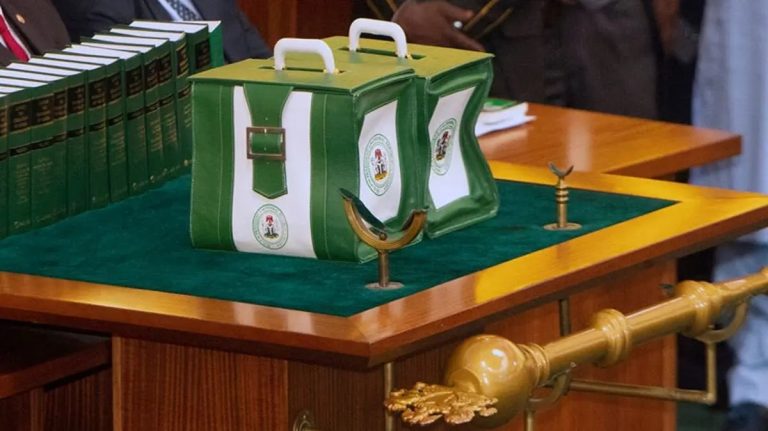
Taiwo Oyedele, Chairman of the Presidential Committee on Fiscal Policy and Tax Reforms, has described Nigeria’s budget as grossly inadequate to meet the country’s developmental needs.
Speaking during an interactive session organized by the House of Representatives on tax reform bills, Oyedele noted the severe fiscal challenges facing Nigeria and highlighted the country’s inability to match its population size with appropriate budgetary allocations.
Oyedele revealed that Nigeria’s total budgetary allocation for 2024, including supplementary provisions, stands at approximately $28 billion. This figure includes the federal government’s N35 trillion budget and the combined N15.9 trillion budgets of all 36 states. However, this $28 billion budget comes with a staggering deficit of about $8.4 billion—a gap largely attributed to revenue shortfalls.
Register for Tekedia Mini-MBA edition 19 (Feb 9 – May 2, 2026): big discounts for early bird.
Tekedia AI in Business Masterclass opens registrations.
Join Tekedia Capital Syndicate and co-invest in great global startups.
Register for Tekedia AI Lab: From Technical Design to Deployment (next edition begins Jan 24 2026).
“The $28 billion budget is barely equivalent to the budget of Kenya, which has a population of 54 million people,” Oyedele noted. “Meanwhile, South Africa, with just over 60 million people, has a budget of $130 billion. How is it that Nigeria, with over 200 million people, operates on a budget this small?”
The fiscal policy expert emphasized that Nigeria’s budget is inadequate even for single sectors like transportation, let alone the broader developmental needs of the nation. “That budget, if dedicated entirely to transportation—roads, rail, flying—it would still not be enough,” he said.
Deficit Woes and Revenue Shortfalls
Economists believe that the $8.4 billion deficit in the 2024 budget adds insult to the injury of Nigeria’s meager budget. Despite Nigeria being Africa’s largest economy, its fiscal capacity falls short of smaller African economies like Kenya, whose budget matches Nigeria’s, and South Africa, whose budget is more than four times larger. Additionally, Nigeria’s counterparts at the top four largest economies in Africa, have far higher budgets. For instance, Algeria has a $100 billion budget, and Egypt, has $120 billion, even with a much lower population.
“The narrative of our country cannot be changed by increasing the budget by 5 percent or 10 percent,” Oyedele said. “The base is just too small. It cannot fund our development.”
Revenue shortfalls remain a significant challenge, with underperforming oil revenues and limited non-oil revenue sources failing to meet budgetary targets.
Nigeria’s revenue is divided between the federal, state, and local governments. Oyedele outlined that the country has eight major revenue sources, five of which—personal income tax, property tax, stamp duties, VAT, and land revenues—are controlled by states. The federal government shares corporate income tax, customs duties, and petroleum and solid mineral revenues with the states.
This fragmented approach limits revenue mobilization at the national level and hampers efforts to address critical deficits, according to him. He noted also that inefficiencies in tax collection and the lack of enforcement mechanisms reduce Nigeria’s ability to optimize its existing revenue streams.
The Deficit’s Impact on Development
Against the backdrop of the $8.4 billion budget deficit, Nigeria’s ability to implement its 2025 budget effectively, like in the past, has been severely impacted. This means that critical sectors such as infrastructure, healthcare, and education will be severely underfunded. This situation results in borrowing to service existing debt, leaving little room for productive investments.
In 2024, Nigeria’s debt servicing costs have already exceeded projections, particularly for foreign debts, driven by naira depreciation and high borrowing costs. These financial constraints compound the pressure on public finances, leaving the government with limited capacity to address pressing developmental needs.
Oyedele’s remarks reflect the broader call for bold fiscal reforms to expand Nigeria’s revenue base and reduce its reliance on borrowing. Proposed measures include improving tax collection, enforcing compliance, and enabling states to generate more revenue through decentralized fiscal policies.
Oyedele noted that Nigeria’s current fiscal framework is insufficient to address the challenges of its growing population and economic demands.
“The base is too small,” Oyedele concluded. “We must reimagine our fiscal policies and take decisive action to expand our budgetary capacity. Only then can we begin to fund meaningful development and create a better future for Nigerians.”



